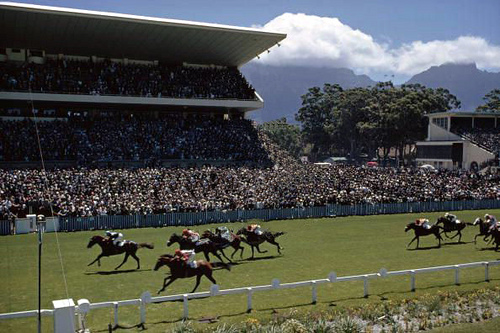
The board of Kenilworth Racing (KR) hosted a well attended meeting with various stakeholders at the course on Monday evening.
They dealt with the many challenges facing the organisation, and then shared some insights into a possible way forward.
Co chairman Robert Bloomberg kicked off by revisiting the time when Western Cape racing joined up with Phumelela.
He explained that Cape racing was under that agreement guaranteed 26% of the national stakes pot, which is entrenched, and can only be altered with the unanimous consent of the KR board.
There is also a sustainability agreement which accepts that the region is loss making and would be for a substantial period of time.
“Stakes had to be maintained at existing levels for three years. After that time Western Cape losses became the responsibility of the Racing Association (RA), and indirectly Phumelela in that our losses get deducted from the national stakes pot.
“If that clause wasn’t there and we had to carry our own losses none of you would be sitting here today. We wouldn’t have racing in the Western Cape” he frankly admitted.
Fellow KR co chair Mark Currie went on to detail the role of the Thoroughbred Horseracing Trust.
“The trust started as a BEE styled vehicle. A certain number of Phumelela shares were set aside. The value of the Phumelela shares is currently around R60 million. At its peak it was R650 million.
“The trust is there to sustain the sport of horseracing into the future. It also owns 100% of Kenilworth Racing, which is worth about R600m, and R15 million in cash.
“It’s very important that everyone knows that if we do away with one of the three racing entities racing will fail in South Africa. So if Kenilworth Racing went, Gold Circle and Phumelela gone. We need to take provincialism out of any discussion that we have” was the stark message.
Mr Bloomberg then explained further.
“What essentially keeps racing afloat in this country is betting on football pools and the royalties that accrue from televising our racing internationally. If we have to be brutally honest racing in this country is bankrupt.
“In terms of the international agreement we have to televise 440 meetings per year. Now we have 428, but the minimum number is 407. The Western Cape has 75 meetings and with the dwindling horse population there is no way the other regions could find those meetings.
“Also 12 of the top 15 stud farms are here. If people are concerned about racing folding in the Cape, it wont happen. If it does all the other regions will fold as well”
Phumelela’s Sports Betting Executive Rob Scott then introduced some brighter news.
“Statistically racing is not dying. Based on the gambling board stats racing has grown consistently over the last ten years.
“But racing has moved away from the tote, which contributes 6% to stakes, towards the bookmakers open bet, which contributes zero.
“In Hong Kong every cent spent goes back into the sport, but not here.”
Mr Currie added that “the open bet is a significant drain on the resources of horseracing as a whole”.
KR director Dean Finder made the point that “in 1994 racing had 100% of the betting rand. Today it has 5%, of which the tote has 2%”.
Moving on to the company’s properties there was better news, as Mr Bloomberg explained.
“Our main thrust in turning in turning this company around lies with our properties. It’s planned to use Durbanville not only as our second racecourse, but also our exclusive training centre. If we can proceed with that it will free up Milnerton and Phillippi to relocate the trainers there.
“We’re free to go as far as Kenilworth is concerned, and have a draft advert which will go out as soon as possible for developers to register their interest.
“We’re not going to asset strip and need to create annuity income. But we need to create additional forms of income as racing isn’t sustainable on its own.”
Mr Currie then emphasised the need for someone senior in Cape Town who can liaise on a day to day basis with the key individuals in Phumelela.
“The individual to be hired needs to know a bit about horseracing, and a lot about marketing”.
The meeting broke up with nobody under any illusions about the many and serious challenges facing Cape racing, and indeed the local product as a whole. .
But there was also a feeling that there are at least plans in place which may see the financial situation become truly viable in the longer term.
Only time will tell.
|